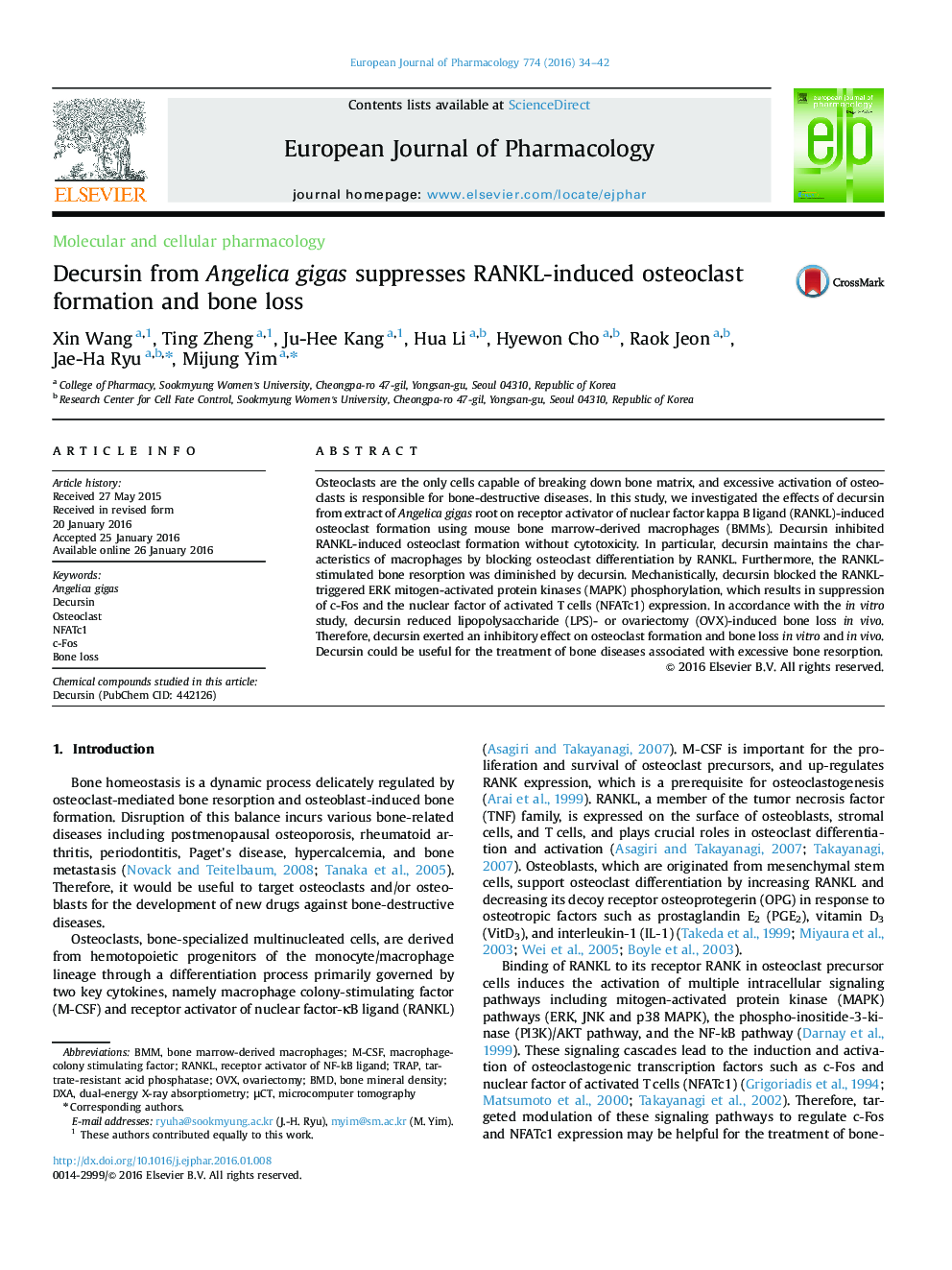| Article ID | Journal | Published Year | Pages | File Type |
|---|---|---|---|---|
| 2531126 | European Journal of Pharmacology | 2016 | 9 Pages |
Osteoclasts are the only cells capable of breaking down bone matrix, and excessive activation of osteoclasts is responsible for bone-destructive diseases. In this study, we investigated the effects of decursin from extract of Angelica gigas root on receptor activator of nuclear factor kappa B ligand (RANKL)-induced osteoclast formation using mouse bone marrow-derived macrophages (BMMs). Decursin inhibited RANKL-induced osteoclast formation without cytotoxicity. In particular, decursin maintains the characteristics of macrophages by blocking osteoclast differentiation by RANKL. Furthermore, the RANKL-stimulated bone resorption was diminished by decursin. Mechanistically, decursin blocked the RANKL-triggered ERK mitogen-activated protein kinases (MAPK) phosphorylation, which results in suppression of c-Fos and the nuclear factor of activated T cells (NFATc1) expression. In accordance with the in vitro study, decursin reduced lipopolysaccharide (LPS)- or ovariectomy (OVX)-induced bone loss in vivo. Therefore, decursin exerted an inhibitory effect on osteoclast formation and bone loss in vitro and in vivo. Decursin could be useful for the treatment of bone diseases associated with excessive bone resorption.
Graphical abstractFigure optionsDownload full-size imageDownload high-quality image (223 K)Download as PowerPoint slide
